Asia in 2017
Nuclear threats, a humanitarian crisis, digital transformation and economic recovery among the themes that shaped the Asian agenda this year.
ASIA
Bombs and bluster: The leaders of the United States and North Korea traded schoolyard insults while the world looked on in alarm as Pyongyang continued to test bigger and better ways to blow up its enemies. North Korea conducted a total of six missile tests, the last one deemed capable of reaching the US mainland. While acknowledging that Pyongyang has made huge strides in nuclear technology, experts do not believe it has an effective warhead … yet. The tests were countered by sanctions from the UN and US military drills with South Korea. However, the American call for harsher sanctions does not sit well with China and Russia, which say blocking trade with the hermit country will not help the peace process. The prospects for civil negotiations seem remote, with US Secretary of State Rex Tillerson backing away from an earlier offer of unconditional talks.
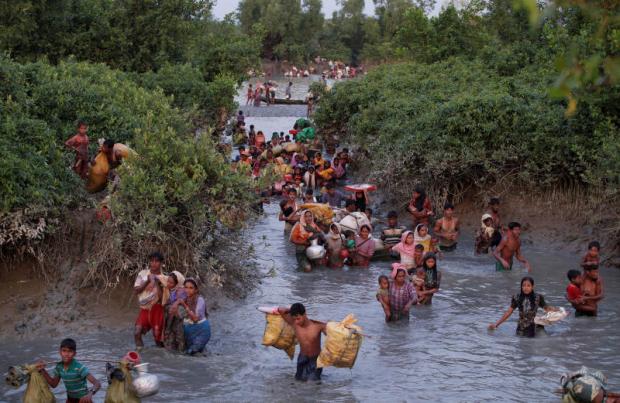
Genocide in Rakhine: The halo slipped from Aung San Suu Kyi as Myanmar’s leader remained largely silent and apparently powerless to stop the ferocious military campaign against the Muslim Rohingya minority in Rakhine state. About 640,000 refugees have fled to Bangladesh since the military began “clearance operations” in August in retaliation for attacks by radicalised Rohingya militants that killed several security officers. Numerous reports of arson, rapes and mass killings have emerged but are difficult to verify because access to Rakhine is tightly controlled. Myanmar and Bangladesh have agreed that the refugees can be repatriated, but few want to return if their security cannot be guaranteed.
Belt tightens: China is pressing ahead with its ambitious Belt and Road infrastructure programme, which is now starting to figure in the economic plans of many countries in Southeast Asia. Special economic zones are being set up, ports are being refurbished and roads and railways are being built in Laos, Thailand, Vietnam, Malaysia, Indonesia and Singapore, many backed by Chinese money and engineering expertise. Beijing is lavishing special attention on Pakistan, to the consternation of India. Japan, meanwhile, is looking to get in on the game, partly to promote its own businesses and also to check Beijing’s growing territorial assertiveness in the region.
CHINA
Mao status: China’s Communist Party amended its constitution in October to enshrine by name the political thought of President Xi Jinping, giving him a status comparable to Mao Zedong, as he entered a second term with a pledge to make the country an even stronger global power. Mr Xi is now indisputably the most influential leader the country has had since Deng Xiaoping, the architect of the reforms that led China to open up to the global economy.
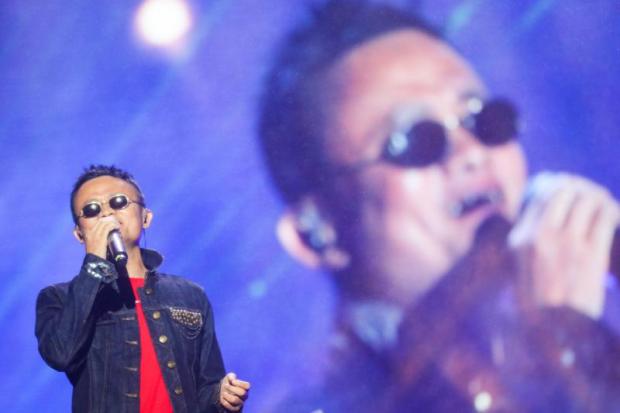
E-normous influence: Jack Ma, the CEO of the e-commerce titan Alibaba and one of China’s richest men, became a movie star and was ranked second among the “World’s 50 Greatest Leaders” by Fortune magazine in 2017. The unconventional Mr Ma celebrated in style by dancing to Michael Jackson music on stage in front of thousands of employees at a company celebration in Hangzhou. On the business front, Alibaba’s annual Singles’ Day in November generated a record 168.2 billion yuan (US$25.3 billion) in sales and its dollar bonds rallied after the biggest Chinese corporate offering of 2017 attracted $46 billion in orders, more than six times the deal size. The company’s shares rose by 107% for the year.
INDIA
India’s economy picked up in the third fiscal quarter to Sept 30, rebounding from a sharp slump as the impact of the sudden 2016 cash ban and the launch of the biggest tax reform in history receded. Prime Minister Narendra Modi has been under pressure ever since the snap decision in late 2016 to withdraw high-value banknotes to curb corruption, causing chaos among businesses and consumers. The nationwide Goods and Services Tax, which replaced a Byzantine system of state and local taxes, also caused turmoil in the $2-trillion economy but the country is gradually adjusting.
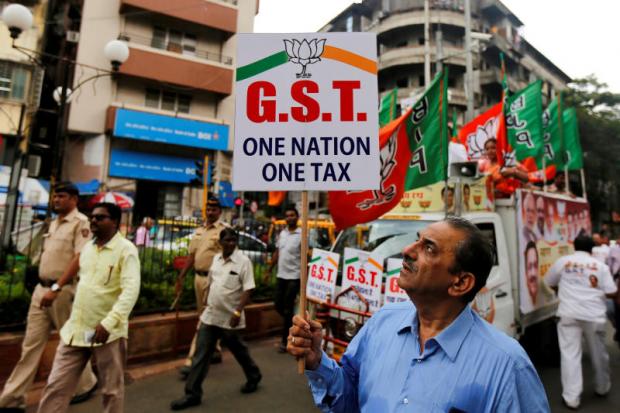
Taxing times:
The most devastating floods to hit South Asia in a decade killed more than 1,400 people this year. Hundreds of villages were submerged and tens of thousands of people sheltered in relief camps across India, Nepal and Bangladesh. Experts highlighted how poorly prepared governments were to deal with the annual problem. They said most government action in India was focused on relief and too little on early warning and prevention. In Bihar, where 514 people died and 850,000 were displaced, campaigners said the government had built too many embankments, roads and highways that trapped water and had given little thought to drainage.
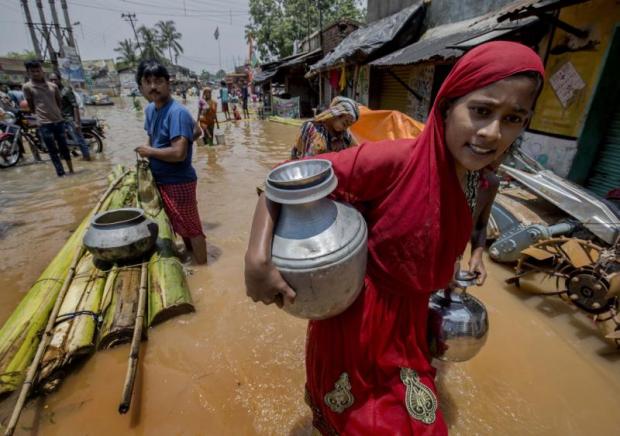
Fatal floods:
JAPAN
The Japanese government approved legislation that will permit Emperor Akihito to abdicate the Chrysanthemum Throne, becoming the first emperor to step down in more than two centuries. In December 2018, when he marks his 85th birthday, the throne will pass to his 57-year-old son, Crown Prince Naruhito. The emperor shared his concerns about his age in a rare video message broadcast in August 2016, which was interpreted as him expressing his wish to step down. Akihito will be Japan’s first monarch to abdicate since Emperor Kokaku in 1817.
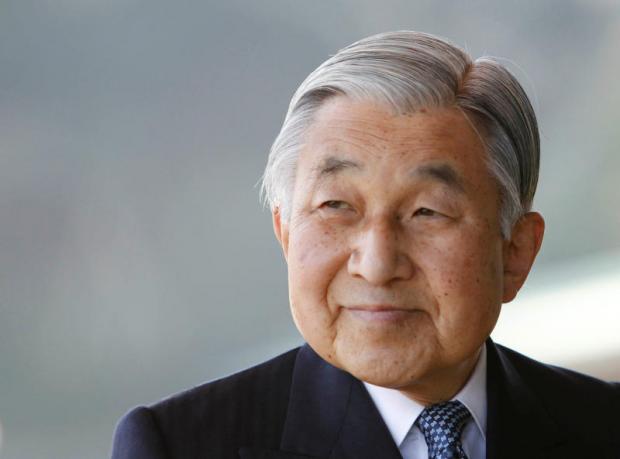
Emperor stepping aside:
Election gamble pays off: Prime Minister Shinzo Abe took advantage of a weak opposition to call and easily win a general election in October. The victory came despite low approval ratings, as voters decided Mr Abe was better qualified than others to continue steering an economic recovery that appears finally to be gaining momentum. The Oct 22 victory boosted Mr Abe’s chances of being re-elected as leader of his Liberal Democratic Party next September to a fresh three-year term, potentially extending his premiership to 2021. He has been prime minister since December 2012.
SOUTH KOREA
Bribery scandal, political storm: Lee Jae-yong, the third-generation heir to the South Korean powerful Samsung conglomerate, was sentenced to five years in prison over a bribery scandal following a ruling in August. South Korea’s third-richest man and the vice-chairman of Samsung Electronics, he had been accused of making large donations to foundations run by a confidante of the deposed president, Park Geun-hye, in return for political favours. The sentence sent a signal that the country’s most influential figures can no longer expect impunity.
THAAD out, peace in: Dozens of people were injured in clashes between South Korean protesters and police as the US military added more launchers to the high-tech missile-defence system it installed in a southern town to better cope with North Korean threats. Seoul has hardened its stance against Pyongyang after a torrent of weapons tests. Washington and Seoul began deploying the THAAD (Terminal High Altitude Area Defence) system before the ouster of corruption-tainted Park Geun-hye from the presidency. Her more liberal successor, Moon Jae-in, is calling for more diplomacy with Pyongyang but the escalation in weapons tests has been the North’s only response. South Korea’s deployment of the US system caused its ties with China to fray and hurt Korean businesses affected by Chinese consumer boycotts. Beijing says North Korea’s provocations threaten its own security.
VIETNAM
The leaders of 21 Pacific Rim economies affirmed the importance of bilateral agreements and recognised “legitimate trade defence instruments”, language that pleased US President Donald Trump, who is no fan of multilateralism. At the same time, the Asia Pacific Economic Cooperation (Apec) forum reiterated its commitment “to fight protectionism, including all unfair trade practices” at a summit in Da Nang. While Mr Trump pursues trade deals on a bilateral basis, the declaration said Apec members were committed to working on ways to complement multilateral trade agreements.
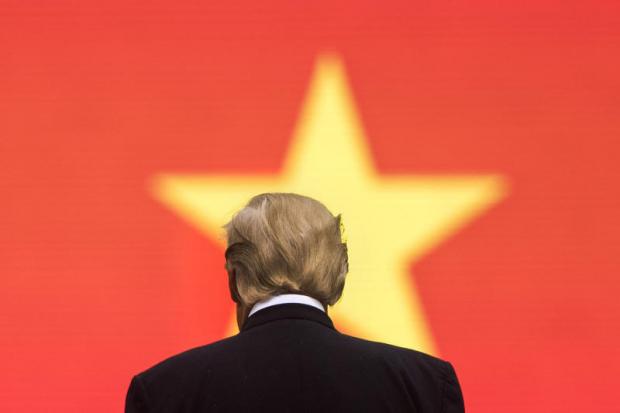
Trade tangle:
Setback for rights: Vietnam’s human rights situation “deteriorated significantly in 2017”, according to Human Rights Watch. It said the Communist Party continued to restrict political rights including freedom of opinion, assembly, association and movement. Curbs take the form of physical and psychological harassment, police surveillance and even extra-judicial house arrest of employers, landlords and family members of those who speak out against the Party. At least 22 rights bloggers and activists were arrested for alleged national security-related violations in 2017.
INDONESIA
Anies Baswedan, a former education minister, was sworn in as governor of Jakarta in May, ending the most bitterly contested race in the country’s democratic era and one that has raised questions about the Muslim-majority nation’s tolerance for ethnic and religious minorities. Former governor Basuki Tjahaja Purnama was absent from the ceremony because he is serving a two-year prison sentence for blaspheming Islam. The ethnic Chinese Christian said the case was orchestrated by his opponents to sabotage his re-election. Anxiety rose in Bali as Mount Agung spewed ash that blocked flight paths and led to the closing of the airport on four days on the popular tourist island in November. Eruptions spread drifting ash more than 7,600 metres into the atmosphere and 100,000 people were ordered to leave the danger zone with a 10km radius from the mountain. The volcano’s last major eruption in 1963 killed 1,100 people. Tourists fled, with only 25% of hotel rooms in Bali occupied in December compared with normal levels of 80% or more.
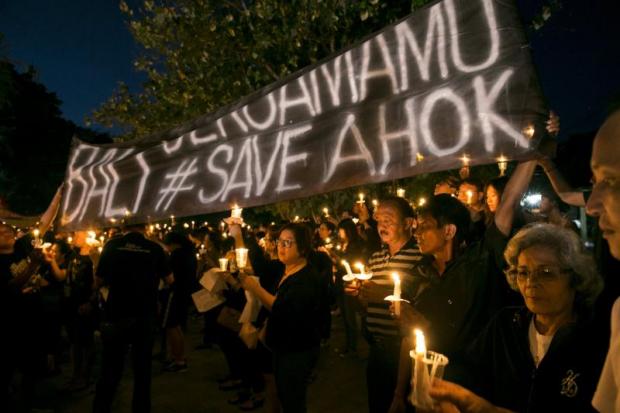
Tolerance tested:
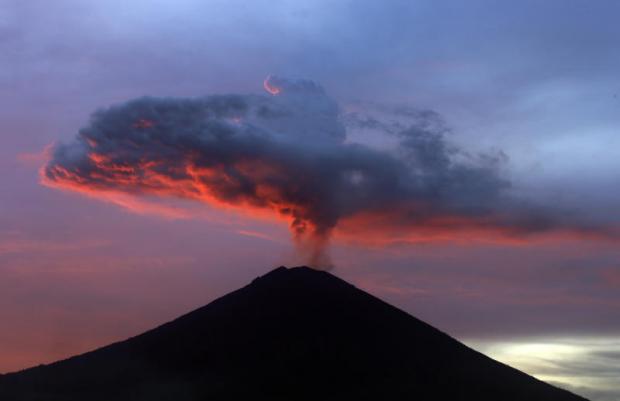
Agung erupts:
MALAYSIA
The trial continues of two young women accused of killing the half-brother of North Korea’s leader in a bizarre incident at the Kuala Lumpur airport. They face the death penalty, while four North Koreans believed to have plotted the attack fled Malaysia immediately after the assassination, according to police testimony. Siti Aisyah of Indonesia and Doan Thi Huong of Vietnam are accused of smearing VX nerve agent onto the face of Kim Jong-nam, an outcast from the North Korean ruling family who lived abroad for years. They have pleaded not guilty, saying they believed they were taking part in a reality TV stunt.
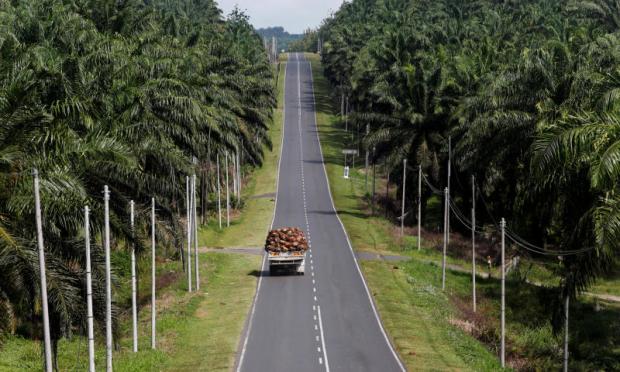
Airport assassination:
More scandal: The government of Prime Minister Najib Rajak heads into the 2018 election under a cloud. While it has thwarted any credible investigation into the looting of the state investment fund 1MDB, misdeeds at a giant majority state-owned agribusiness could have serious political repercussions. The chairman of Felda Global Ventures Holdings Bhd (FGV) stepped down in June after initiating an investigation into fishy deals possibly involving the firm’s CEO and other executives. The government said the move by Mohamad Isa Abdul Samad was intended to preserve the integrity of the investigations. FGV, the world’s third-largest palm plantation group, was plunged into turmoil after chief executive Zakaria Arshad and three others were suspended by the board over transactions at subsidiary Delima Oil Products.
THE PHILIPPINES
Philippine President Rodrigo Duterte won martial law powers across the southern third of the country until the end of 2018 to combat Islamist militants and leftist rebels, as Congress brushed aside fears of a looming dictatorship. In May, he imposed military rule across the region of 20 million people, hours after armed militants linked to Islamic State seized the southern city of Marawi. Mr Duterte declared Marawi “liberated” in October after a five-month US-backed bombing campaign that claimed 1,100 lives and left large areas of the city in ruins. He later warned that those who escaped were regrouping. Critics fear that Mr Duterte, who earlier gave the police virtual carte blanche to kill thousands of drug suspects, is seeking to steer the Philippines back into dictatorship as Ferdinand Marcos did in 1972.
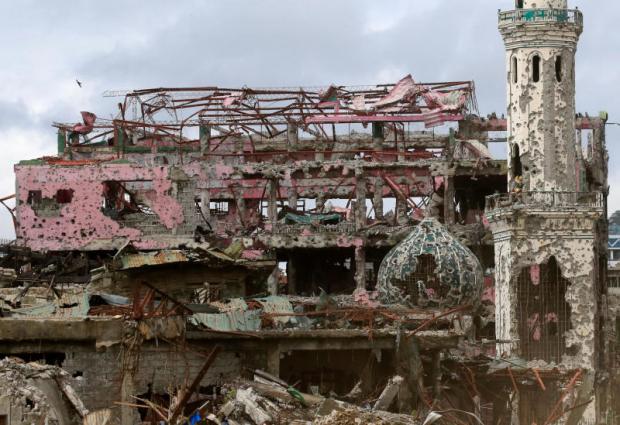
ISIS comes to Asean:
Don’t mention it: Asean leaders at their summit in November once more avoided mentioning China’s construction of islands in the South China Sea and the international arbitration ruling that invalidated Beijing’s claims, in the latest show of China’s clout. President Rodrigo Duterte, chairing the event, has been looking to curry favour with China, turning the Philippines from being one of Beijing’s sharpest critics in the disputed sea to a bystander. The summit also skirted any expression of alarm over serious human rights concerns, including the plight of Rohingya Muslims in Myanmar and the Philippines’ deadly anti-drug campaign.
SINGAPORE
The house where Singapore founding father Lee Kuan Yew lived became the focal point of an unseemly and very public family squabble that captivated Singaporeans unaccustomed to such displays. Two of Lee’s three children accused their elder brother, Prime Minister Lee Hsien Loong, of abusing his power and attempting to further a Lee family dynasty, charges he denied in parliament. The dispute centred on a proposal by a government committee to turn the Lee home into a museum, against the wishes of the late statesman, who disliked the idea of monuments and said it should be demolished after his death. The prime minister also said he disagreed with the idea but that it would not be right for him to attempt to influence a government decision.
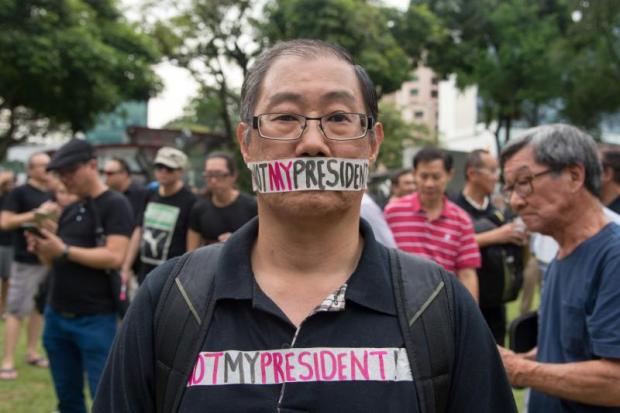
Family feud:
Uncontested election: Hundreds of Singaporeans, most dressed in black, held a silent protest in September against an uncontested presidential election. The election of Halimah Yacob, a former speaker of parliament, as the country’s first female president led to dismay over how other prospective candidates were rejected. Aiming to strengthen a sense of inclusivity, multicultural Singapore had decreed the largely ceremonial six-year post would be reserved for candidates from the minority Malay community this time. Of the four other applicants, two were not Malays and two were not qualified to run.
MYANMAR
Business confidence in Myanmar has plunged amid growing frustration over leader Aung San Suu Kyi’s management of the fledgling economy. She has identified economic reform as a key goal to complete Myanmar’s democratic transition after decades of isolation under military rule, but the sluggish pace of change has disappointed many. Investors also fear the possible reinstatement of some sanctions over the government’s treatment of the Rohingya minority. The short-term business confidence index dropped to 49% in 2017 from 73% a year ago, according to a survey by the consultancy Roland Berger.
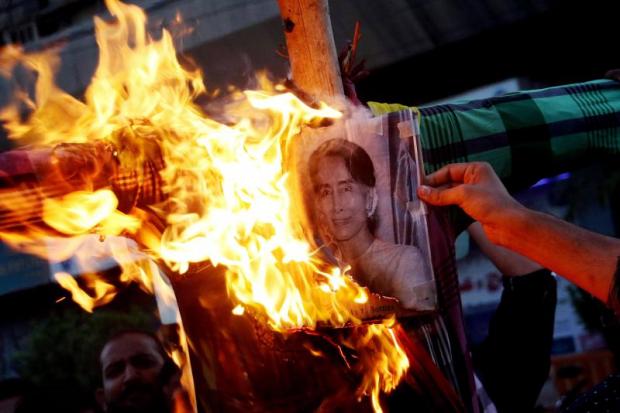
Honeymoon over:
CAMBODIA
Democracy in peril: The European Union pulled support for Cambodia’s election authority, questioning the legitimacy of upcoming polls after the dissolution of the opposition transformed the kingdom into a virtual one-party state under strongman Hun Sen. The Supreme Court in November dissolved the Cambodia National Rescue Party (CNRP) after Hun Sen intensified his attacks and had its leader arrested on trumped-up treason charges. The CNRP won almost 45% of the vote in the 2013 national election and nearly the same proportion in local polls this year. Dozens of lawmakers have fled into exile, and for good measure Hun Sen has also been busy closing any media outlets that don’t toe the line.
LAOS
Border bust-up: Tension between Laos and Cambodia flared up in April when around 30 Lao soldiers were stationed in Cambodia’s northern Stung Treng province to halt Cambodian military engineers from building a road on what Cambodia maintains is its territory. The spat escalated when Cambodia started sending military vehicles to the area but the issue was later resolved via negotiation between the countries’ leaders. They said they would ask officials to work on demarcating the disputed patch of their 540-kilometre land border, where territorial squabbles are common.
BRUNEI
Change of the guard: Lim Jock Hoi, a seasoned diplomat from Brunei, will take the helm of Asean next week. Singapore Prime Minister Lee Hsien Loong confirmed Mr Lim’s appointment as the next Asean secretary-general during a speech to mark the start of Singapore’s chairmanship of the 10-nation bloc in 2018. Mr Lim, permanent secretary at the Brunei Foreign Affairs and Trade Ministry, will succeed Le Luong Minh of Vietnam.
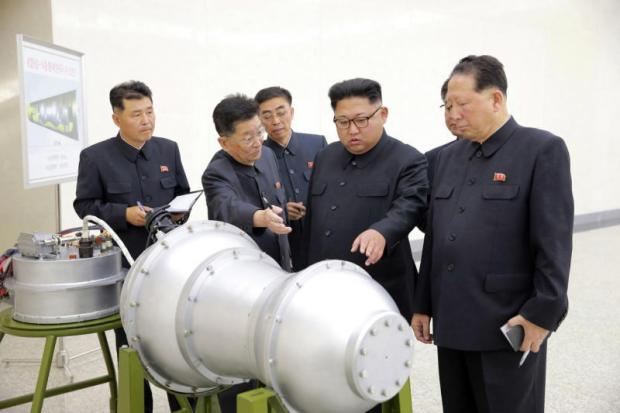


 English
English




